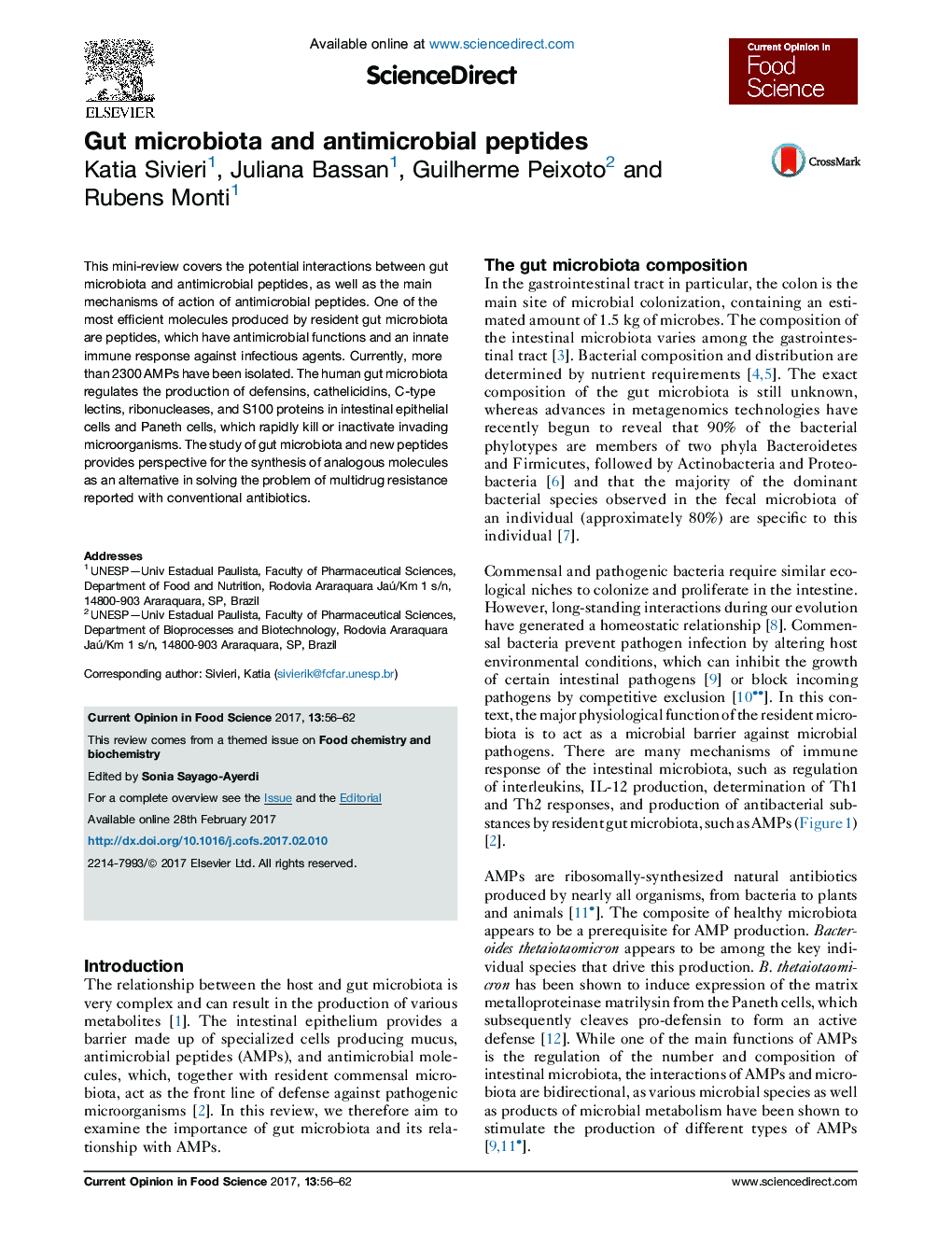| کد مقاله | کد نشریه | سال انتشار | مقاله انگلیسی | نسخه تمام متن |
|---|---|---|---|---|
| 5520922 | 1545092 | 2017 | 7 صفحه PDF | دانلود رایگان |
- The most efficient molecules produced by resident gut microbiota are peptides.
- The human gut microbiota regulates the production of AMPs.
- Discovery of AMPs provide perspective for the synthesis of analogous molecules as an alternative to antibiotics.
This mini-review covers the potential interactions between gut microbiota and antimicrobial peptides, as well as the main mechanisms of action of antimicrobial peptides. One of the most efficient molecules produced by resident gut microbiota are peptides, which have antimicrobial functions and an innate immune response against infectious agents. Currently, more than 2300 AMPs have been isolated. The human gut microbiota regulates the production of defensins, cathelicidins, C-type lectins, ribonucleases, and S100 proteins in intestinal epithelial cells and Paneth cells, which rapidly kill or inactivate invading microorganisms. The study of gut microbiota and new peptides provides perspective for the synthesis of analogous molecules as an alternative in solving the problem of multidrug resistance reported with conventional antibiotics.
231
Journal: Current Opinion in Food Science - Volume 13, February 2017, Pages 56-62
